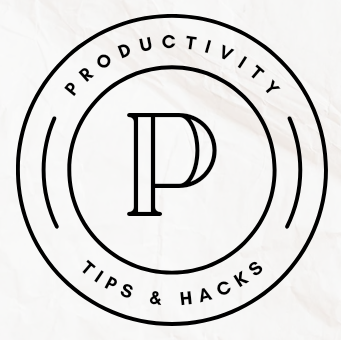
Procrastination got a bad reputation – often being called laziness. But hold up, it’s not really about slacking off. In this article, we are going to explore what exactly is procrastination, why do we procrastinate and how can we stop it.
What Exactly Is Procrastination – Is It Really Being Lazy?
Well, as mentioned earlier, procrastination is really not as simple as being lazy.
In fact, in many circumstances, it has nothing to do witih laziness at all!
Very often, procrastination is about dodging the unpleasant vibes we get from certain tasks.
Maybe it is the fear of messing up or when we are aiming for that impossible level of perfection.
Procrastination is more like an emotional issue than a time management failure.
Have you ever feel anxious or insecure about starting something?
If you have, do know that you’re not alone. This dread is a key reason for why we put things off.
Instead of diving into tasks, this fear can make us scroll through social media or binge-watch shows we’ve seen a zillion times before, and still not attending to what really needs to be done.
Being aware about these emotions is a crucial step to help us tackle them head-on, instead of letting them continue to block us.
Do You Know That There Are Different Types Of Procrastinators?
And here’s a thing about procrastinators: not all are the same.
Procrastinators can be divided into two main groups:
- Passive procrastinators
- Active procrastinators
Passive procrastinators are those who can’t decide. They often ended up stuck due to their indecisiveness.
Then there are Active procrastinators who hold things off on purpose. This is because they think they’ll work better when the time is right.
They are waiting for the best time to act, maybe when it’s closer to the deadline or when they feel they are more mentally prepared to.
Different Behavioural Patterns Of Procrastinators.
Behavior patterns also play a part.
The perfectionist procrastinates as he/she is worried about making the tiniest mistake.
Read here to know more about Procrastination and Perfection.
The dreamer who procrastinates as he loves big ideas but is forever not putting ideas into actions and skims the details.
The crisis-maker who thrives off that deadline adrenaline and procrastinate and will only act closer to the deadline.
The worrier who procrastinates as he/she spends most of his/her energy worrying due to their hesitation about change.
Recognizing these patterns can help us break the cycle.
So, next time you find yourself sidestepping a task, think about what’s really holding you back.
Is it fear, self-doubt, or maybe just a little too much on your plate?
Being aware of these emotional roots is the first step in kicking procrastination to the curb.
The Science Behind The Reason To Procrastinate – Immediate Gratification vs Long-Term Rewards
Procrastination often arises due to our brain’s natural craving for instant rewards.
Imagine this: you’re planning to tackle a project, but scrolling through your favorite app offers immediate satisfaction.
That’s the struggle between long-term goals and instant gratification.
This is called Temporal discounting.
It’s that thing where future rewards seem less valuable than what’s gratifying right now.
Completing a paper for a future grade feels miles away compared to the immediate joys of watching another episode of your fave show.
This bias leans heavily on the present, making future benefits feel distant.
Thanks to how our brains work, entering the cycle of procrastination is surprisingly easy.
Decision fatigue is another reason for procrastinating.
The mental drain from a day loaded with decisions can make that next important one seem like a mountain.
When this happens, picking up a less demanding task — or none at all — looks more appealing at the end of the day.
The Zeigarnik Effect can also explain why procrastination happens.
This effect explains that psychologically, we tend remember unfinished tasks more vividly than completed ones.
This helps in keeping incomplete tasks in the front and center of our minds and makes it tough for us to ignore these tasks.
But here’s the disadvantage: tension might arise from remembering these unfinished tasks.
This tension doesn’t necessarily push us to finish the task – sometimes, it just adds pressure.
No surprise, huh? Procrastination is a hit, especially among students who are forever juggling deadlines and social lives.
The trick here is recognizing these patterns, that way, we can call them out and work towards prioritizing actions.
Realizing these little brain tricks can help us steer back on course when we find ourselves procrastinating.
Breaking the Procrastination Cycle with Practical Strategies
Breaking free from procrastination starts with smart tactics, and it’s all about baby steps.
- First up, clear goals are your new best friend.
When tasks are not clear, the brain naturally just throws in the towel.
So, to avoid this, nail down specific, actionable steps to give your work a roadmap.
- Use the Pomodoro Technique.
This technique is like magic for those wandering minds.
You work in short bursts, generally around 25 minutes, then take a quick break.
This technique helps to keep your focus sharp and beats that nagging urge to drift off.
You can learn more about the Pomodoro Technique here!
- Reward yourself!
We all love a good reward, right?
Setting up a little treat for finishing parts of a task can be super motivating.
It’s positive reinforcement in action and can be a real game-changer because you know there is something to look forward to after all the hard work which you had put in.
By honing in on small wins—like finishing one specific task rather than staring at an ever-growing list—you gather momentum that leads to bigger successes.
- Keep an eye on procrastination warning signs.
Try to see if there a pattern. Do you tend to procrastinate when you are faced with certain tasks?
Or do you tend to put things off during certain times when distractions get you?
Catching these patterns and being aware of them enables you to tackle them head-on by eliminating distractions and this can pave the way for smooth productivity.
- Lastly, cut yourself some slack.!
Do recognize that everyone slips up every now and then, after all, we are not saints!
Being kind to yourself can help break the procrastination cycle too.
When you’re understanding rather than critical, you’ll find it easier to bounce back after being distracted and return to being able to focus.
This is because you will less likely spend time on feeling bad about yourself which will prevent you from being able to move forward.
Long-term Consequences and Overcoming Procrastination for Improved Well-being
Procrastination isn’t just about finishing late or rushing at the last moment.
It’s something deeper – it is often accompanied by unnoticed negative consequences on well-being.
Do you know that constant postponing adds layers of stress?
This stress messes with both your mental and physical health.
What makes matters worst as this strain can spill into relationships.
It is also important to note that a big part of this can be linked to mental health factors like depression or OCD.
These mental conditions can ramp up the emotional elements of procrastination.
For people with these mental conditions, a forgotten task will not just merely be a forgotten task.
This forgotten task can become a heavier mental burden to these people.
In this case, do talk either family members, friends or professionals.
Understanding this interplay is crucial to addressing the root causes.
- Develop sustainable habits.
To combat procrastination, developing sustainable habits is key.
Think beyond tackling today’s to-do list. 
Focus on building a consistent routine where tasks get done because they’re part of your daily flow, not an obstacle you’re facing each day.
This might mean setting realistic priorities or finding new ways to stay organized.
Read here if you want to know more about the 7 Habits of Highly Successful People.
- Start small – don’t be overly ambitious!
Shifting from procrastination to productivity isn’t something you can change overnight.
Starting small is the key.
Sometimes, just getting started is the hardest part, but you will realise that after taking the first step, the next steps become easier!
This can lead to a path of greater fulfillment and satisfaction in everything you tackle.
From stress reduction to healthier relationships, the positive impact is waiting for those who break the cycle.
And after you have managed to break the cycle, perseverance is crucial.
With perserverance, very soon, you will realise that procrastination is something you can overcome with practice.
If you have any questions or experience about procrastination and how to stop procrastinating, let me know in the comments below. I would very much like to hear from you.
As usual, thank you so much for reading this article!

Such an important topic as procrastination can be the single post important thing that will hinder someones development or potential to achieve goals and/or success. Often misconstrued as you have alluded to, it is very much to do with mental understanding, harnessing your mental strength which can quite often lead to alleviating procrastination. I love how this blog further divulges into active and passive procrastinators with detail and the science behind it. This blog does a great job helping people understand the what and why and helpful tips to combat. Very helpful indeed.
Hi Nikki!
Thank you so much for your kind comments!